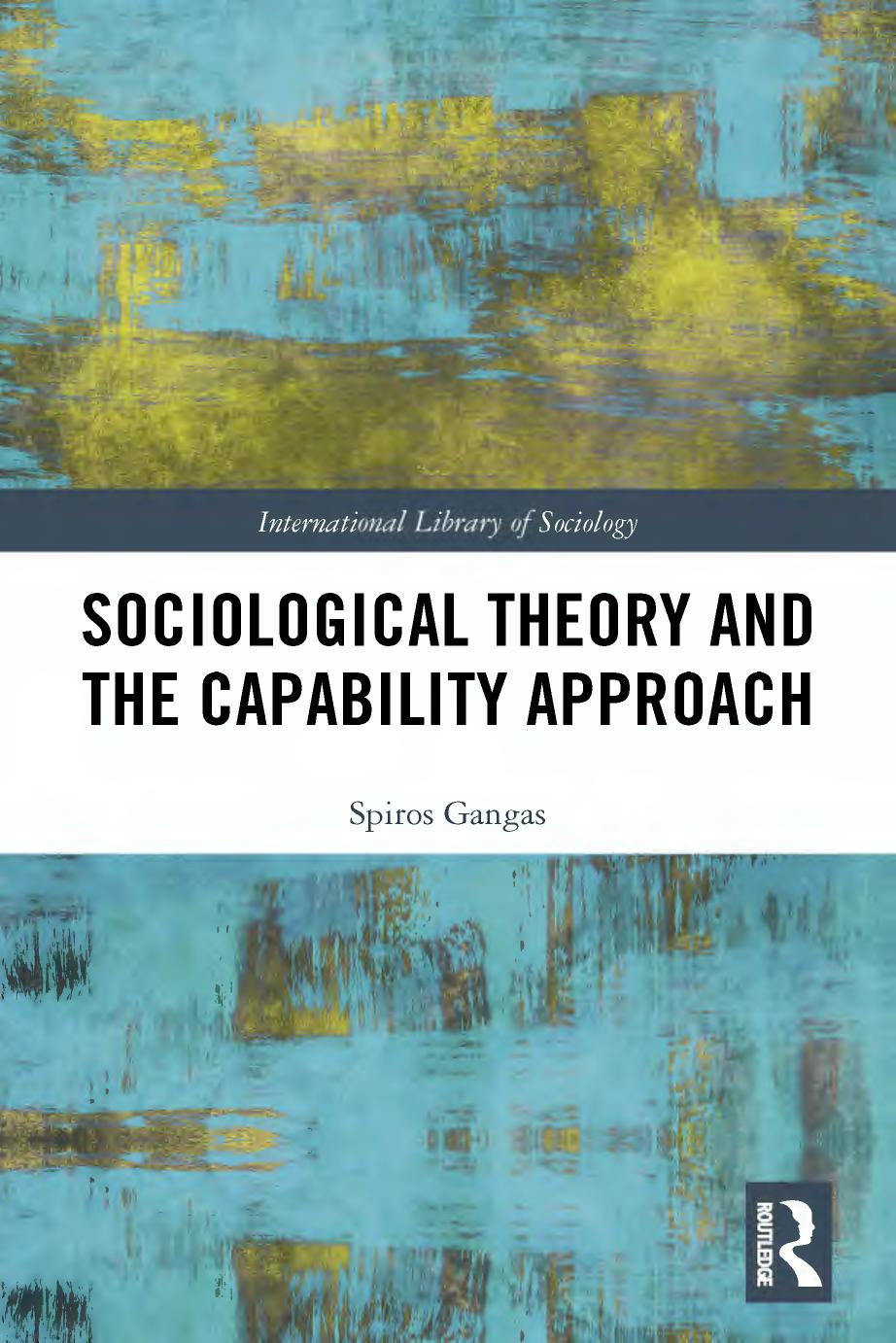Sociological Theory and the Capability Approach by Spiros Gangas

Author:Spiros Gangas [Gangas, Spiros]
Language: eng
Format: epub, pdf
ISBN: 9780367726690
Google: YScCzgEACAAJ
Publisher: Taylor & Francis Group
Published: 2021-03-31T04:59:04+00:00
Thus, the self-relation that Jaeggi and Nussbaum argue for is enveloped in socially accomplished yet open to collective frameworks of acting in relation to others.
Alienation from what? Deprivation from what?
A first attempt at decompressing alienation through CA is to render explicit many of its unarticulated premises. The question âalienation from what?â asked by sociologists and philosophers can be reformulated as âdeprivation from whatâ? According to most alienation narratives, alienation signifies bifurcation and contradiction between social entities, which deserve to exist in an interdependent and cooperative arrangement. This dialectical interdependence corresponds, if we follow Hegel, Marx and Durkheim, to social arrangements and institutions founded on freedom, autonomy and justice. Because deprivation carries a normative adjunct capable of entering actorsâ experiences in a variety of ways (contingent on cultural identity, historical heritage, institutions and international relations), it no longer mystifies the normative âessenceâ that had always been presupposed by alienation approaches. Rather, CA informs us about the degree and type of deprivation that is likely, if and when it occurs, to foster alienation. It is not therefore alienation that generates deprivation, but rather it is the agencyâs socially derived capability deprivation that yields the experiential consequence of alienation.
If we briefly revisit the analytical categories of alienation theory as developed by sociology (e.g. Seeman 1959) we see that these are configured as an interrelated set of core deprivations: powerlessness, meaninglessness, normlessness, estrangement and social isolation. Calibrated into the conceptual scheme of capabilities, powerlessness signals deprivation from the capability of control over oneâs material and political environment, meaninglessness captures deprivation in terms of dissociation from affiliations and sociability as an outcome of substantive powerlessness, normlessness can be seen as a consequence of deprivations in the capabilities of practical reason (i.e. the self proves incapable of forming and planning a conception of the good in the absence of fair normative networks) and affiliation (as the actor fails to fulfil self-esteem and recognition in ways other than norm-breaching ones, or experiences as meaningless a reality where such norms are poorly validated in everyday life). Estrangement and social isolation constitute also substantive deprivations from our sociality, cut off from recognition and esteem-securing social groups, roles and qualifications. These convey to the self the sense of fulfilment and the cognitive confirmation that she counts according to her contributions to collectively valued goals, but also substantively as a human being capable of choosing, forming and transforming preferred lifestyles and goal sets.10
Decompressing alienationâs normative potential forces us to rethink it in terms of Marxâs admirable formulations and see if the normative premises he implied but did not develop further in his mature work, allow our proposed reconstructions. Marx seems to make room for what later developed as CA when he writes in the Grundrisse that âthe capability to consume is a condition of consumption, hence its primary means, and this capability is the development of an individual potential, a force of productionâ (Marx (1857â1858) 1993, 711 [original emphasis] ). In the famous passage on alienation and the manifold development of
Download
Sociological Theory and the Capability Approach by Spiros Gangas.pdf
This site does not store any files on its server. We only index and link to content provided by other sites. Please contact the content providers to delete copyright contents if any and email us, we'll remove relevant links or contents immediately.
Cecilia; Or, Memoirs of an Heiress — Volume 1 by Fanny Burney(32544)
Cecilia; Or, Memoirs of an Heiress — Volume 2 by Fanny Burney(31942)
Cecilia; Or, Memoirs of an Heiress — Volume 3 by Fanny Burney(31928)
The Great Music City by Andrea Baker(31915)
We're Going to Need More Wine by Gabrielle Union(19033)
All the Missing Girls by Megan Miranda(15942)
Pimp by Iceberg Slim(14481)
Bombshells: Glamour Girls of a Lifetime by Sullivan Steve(14050)
For the Love of Europe by Rick Steves(13894)
Talking to Strangers by Malcolm Gladwell(13345)
Norse Mythology by Gaiman Neil(13344)
Fifty Shades Freed by E L James(13231)
Mindhunter: Inside the FBI's Elite Serial Crime Unit by John E. Douglas & Mark Olshaker(9317)
Crazy Rich Asians by Kevin Kwan(9275)
The Lost Art of Listening by Michael P. Nichols(7488)
Enlightenment Now: The Case for Reason, Science, Humanism, and Progress by Steven Pinker(7306)
The Four Agreements by Don Miguel Ruiz(6744)
Bad Blood by John Carreyrou(6610)
Weapons of Math Destruction by Cathy O'Neil(6264)
